Accounting for Non Accountants: SOX Act Impact on Business Operations
VerifiedAdded on 2022/11/29
|5
|803
|240
Essay
AI Summary
This essay examines the Sarbanes-Oxley Act (SOX) of 2002, focusing on its impact on financial regulations and corporate governance. It contrasts the views of management and accountants regarding the changes brought about by the act, which aimed to restore public confidence after major accounting scandals like Enron and WorldCom. The essay highlights how SOX enhanced auditor accountability, reduced financial fraud, and strengthened internal controls. It discusses the positive changes within companies, including increased reliability of financial information, improved corporate governance, and greater board independence. The analysis emphasizes how SOX has contributed to more effective financial reporting and regulatory compliance, ultimately benefiting stakeholders by providing more accurate and reliable financial data. The paper also references several academic sources to support its claims.
1 out of 5
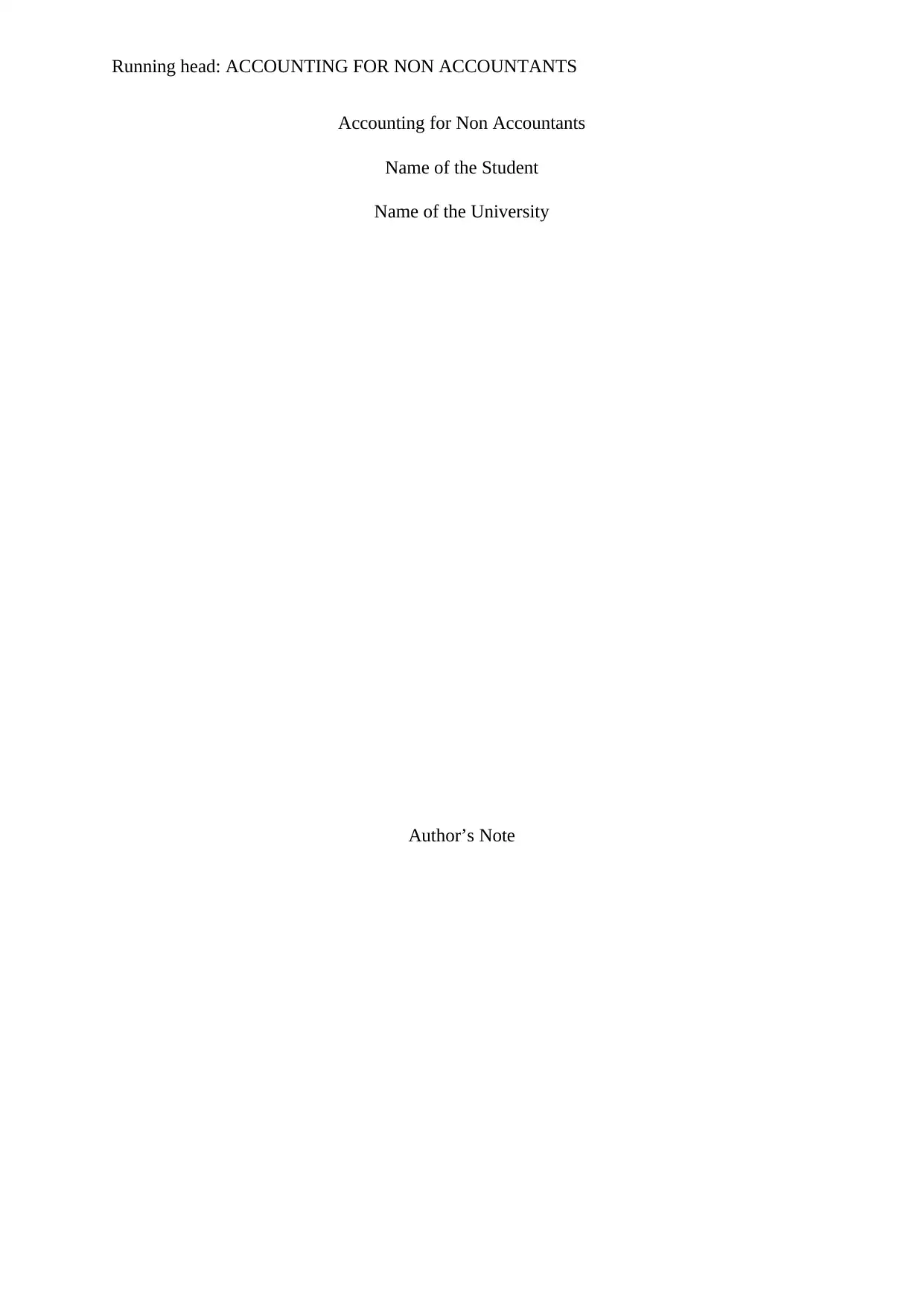
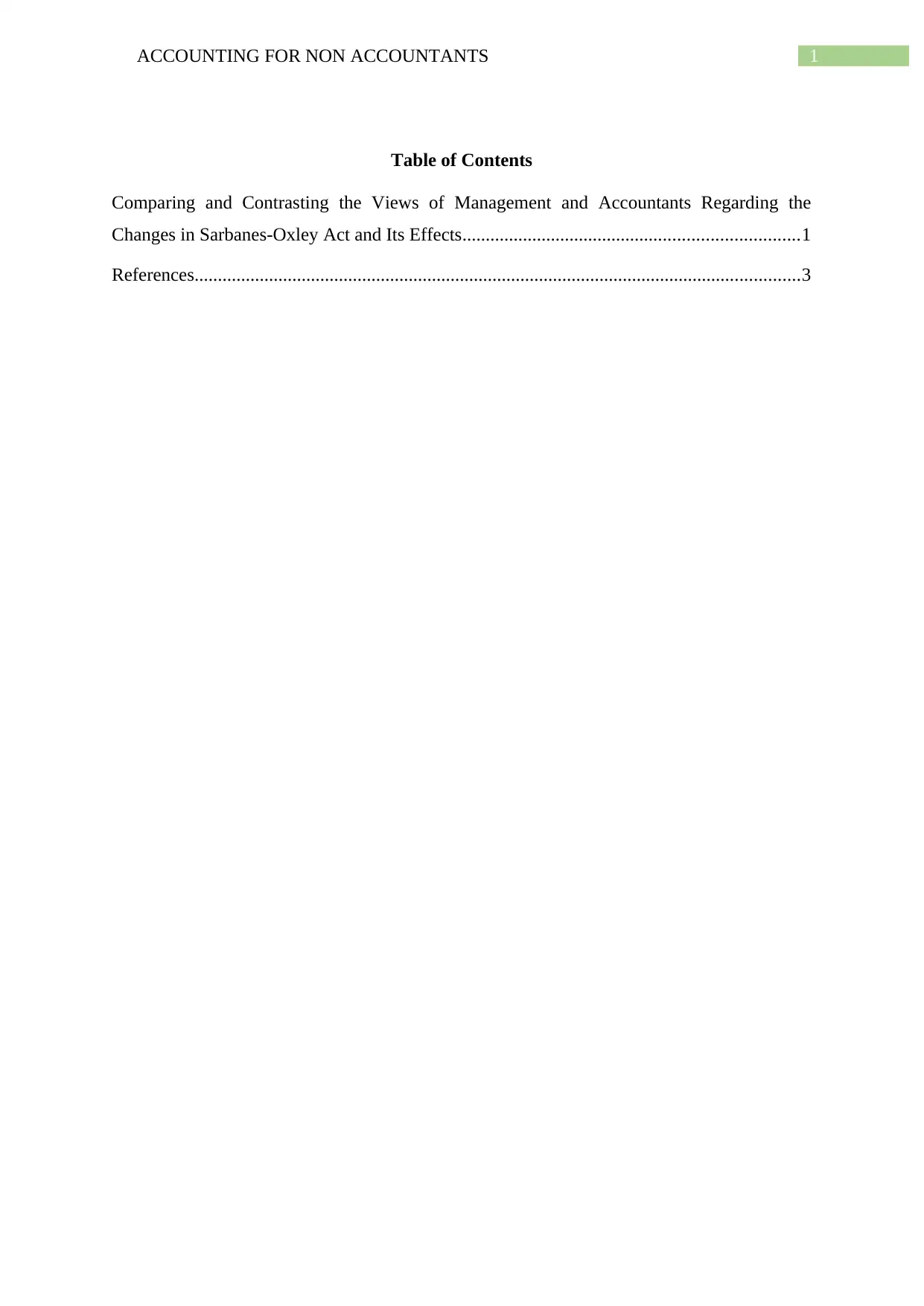
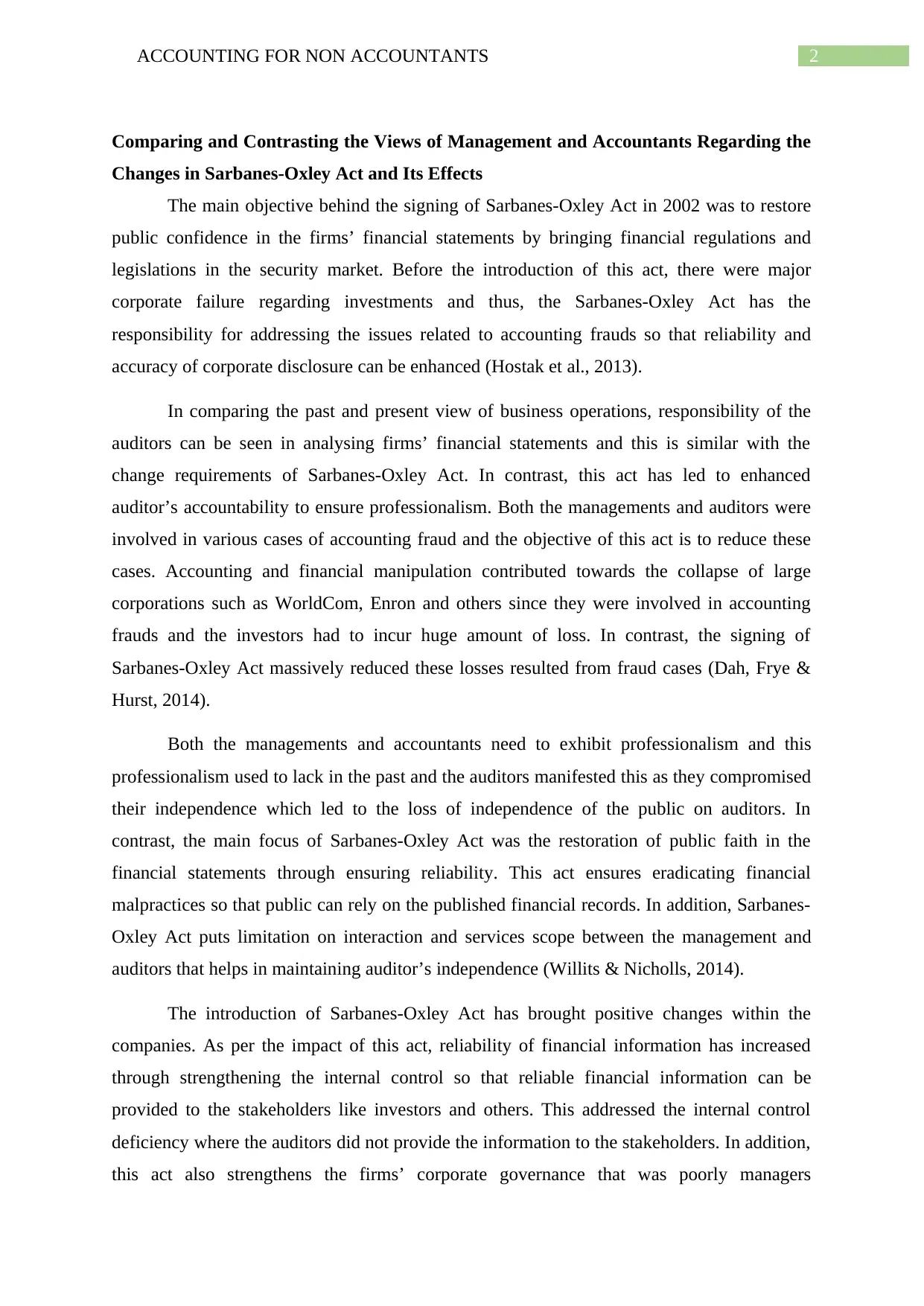

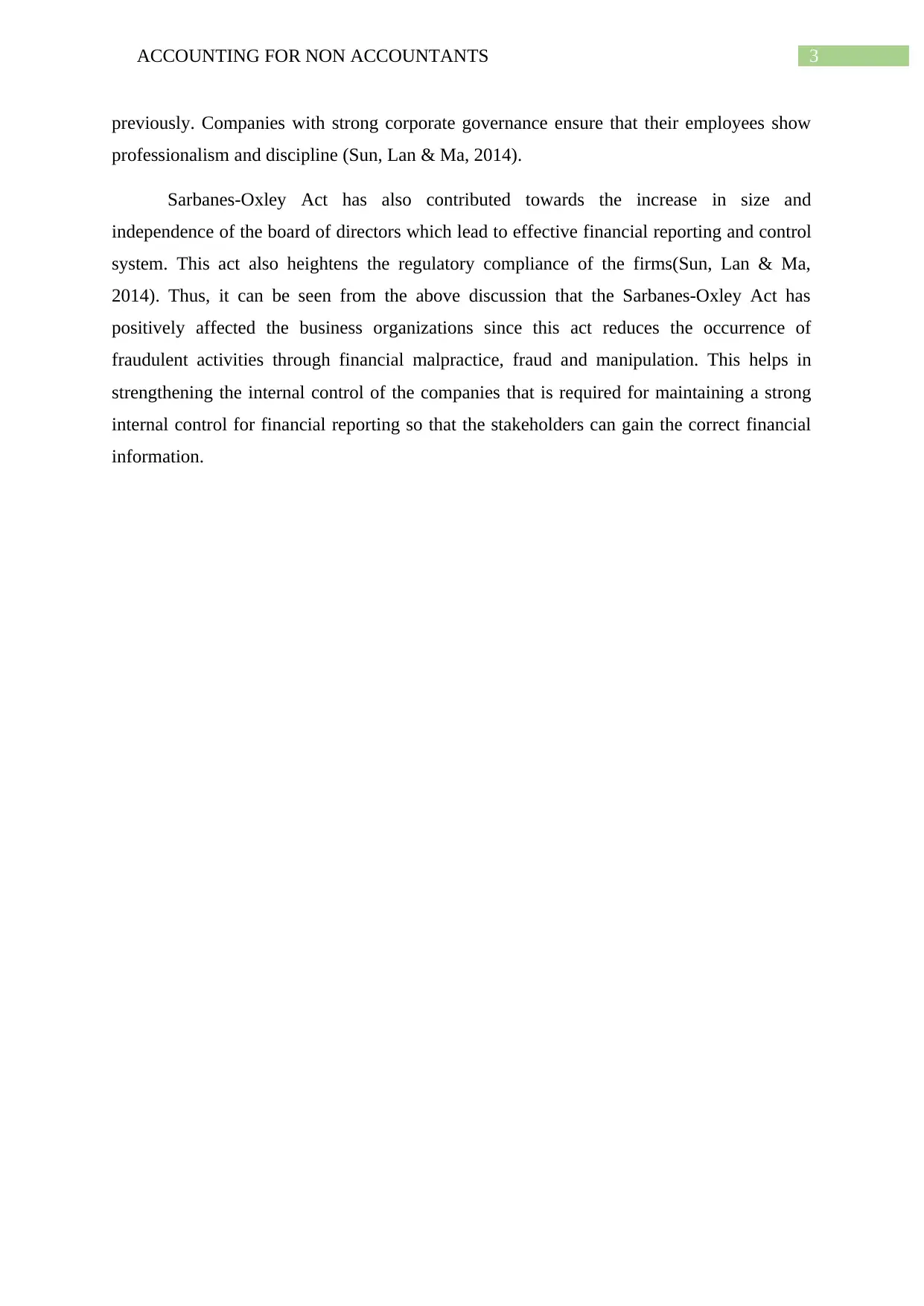
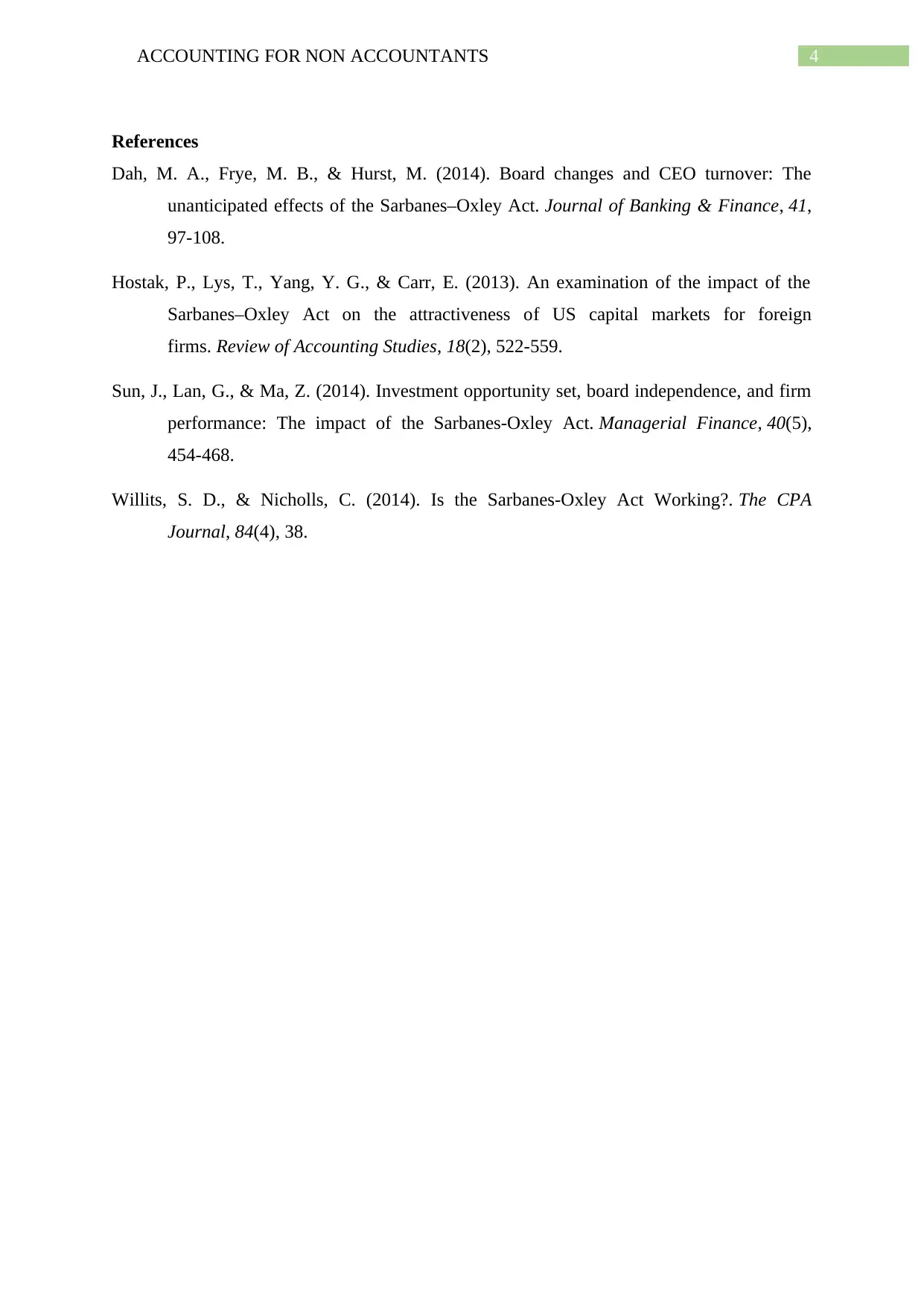






![[object Object]](/_next/static/media/star-bottom.7253800d.svg)